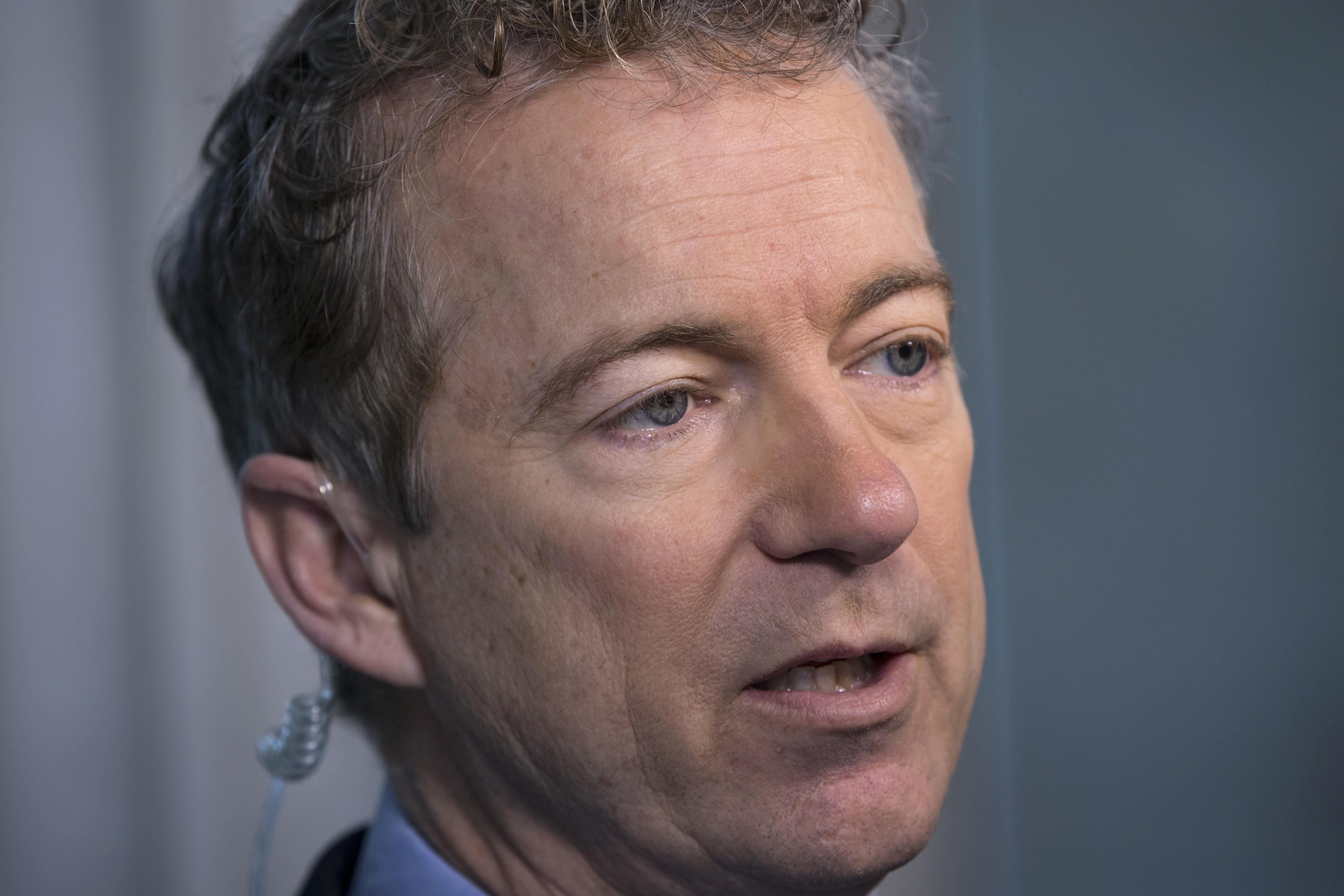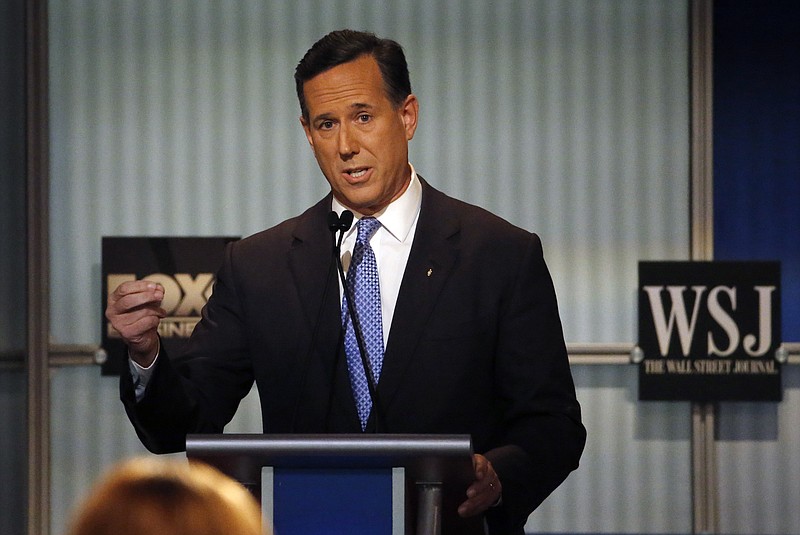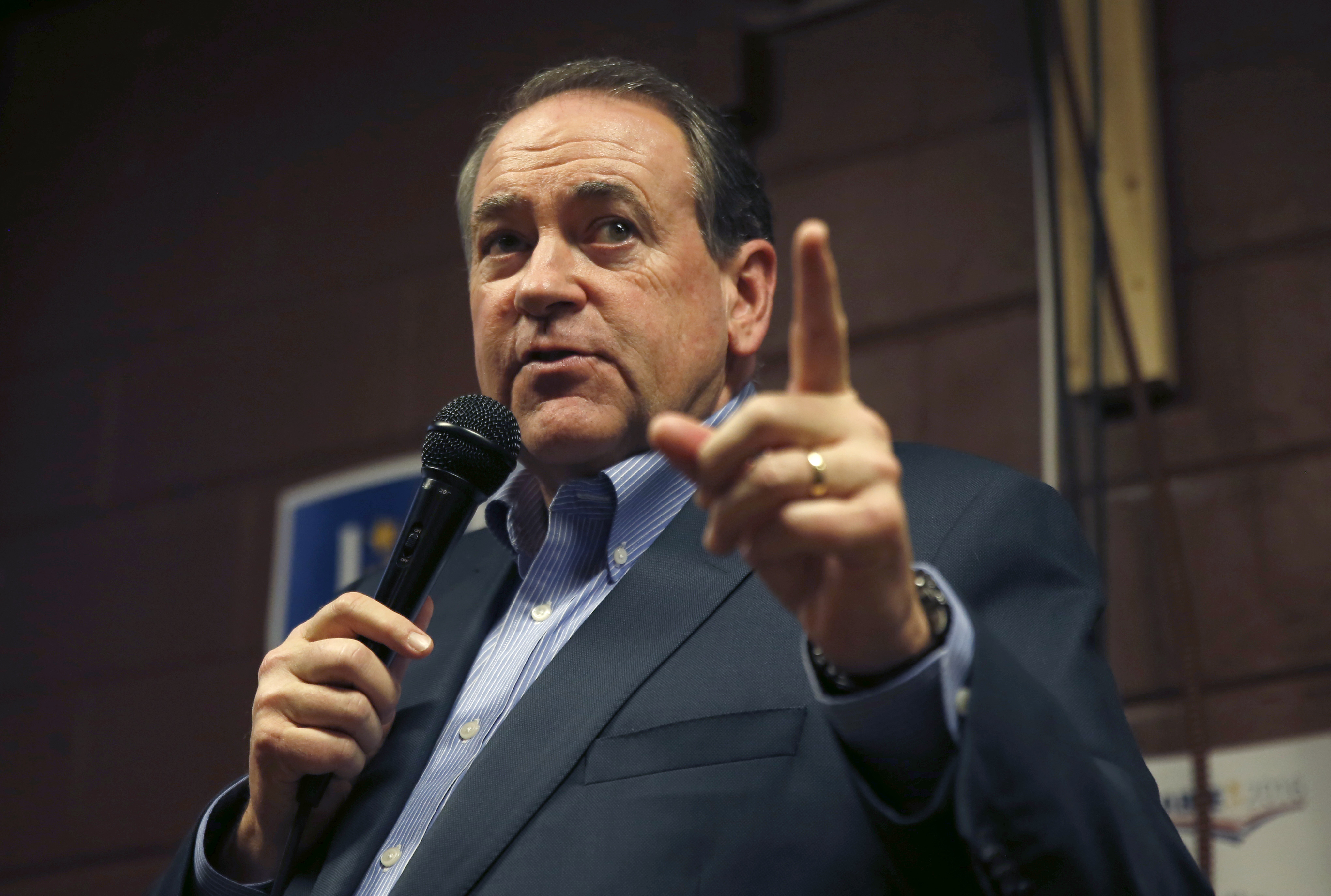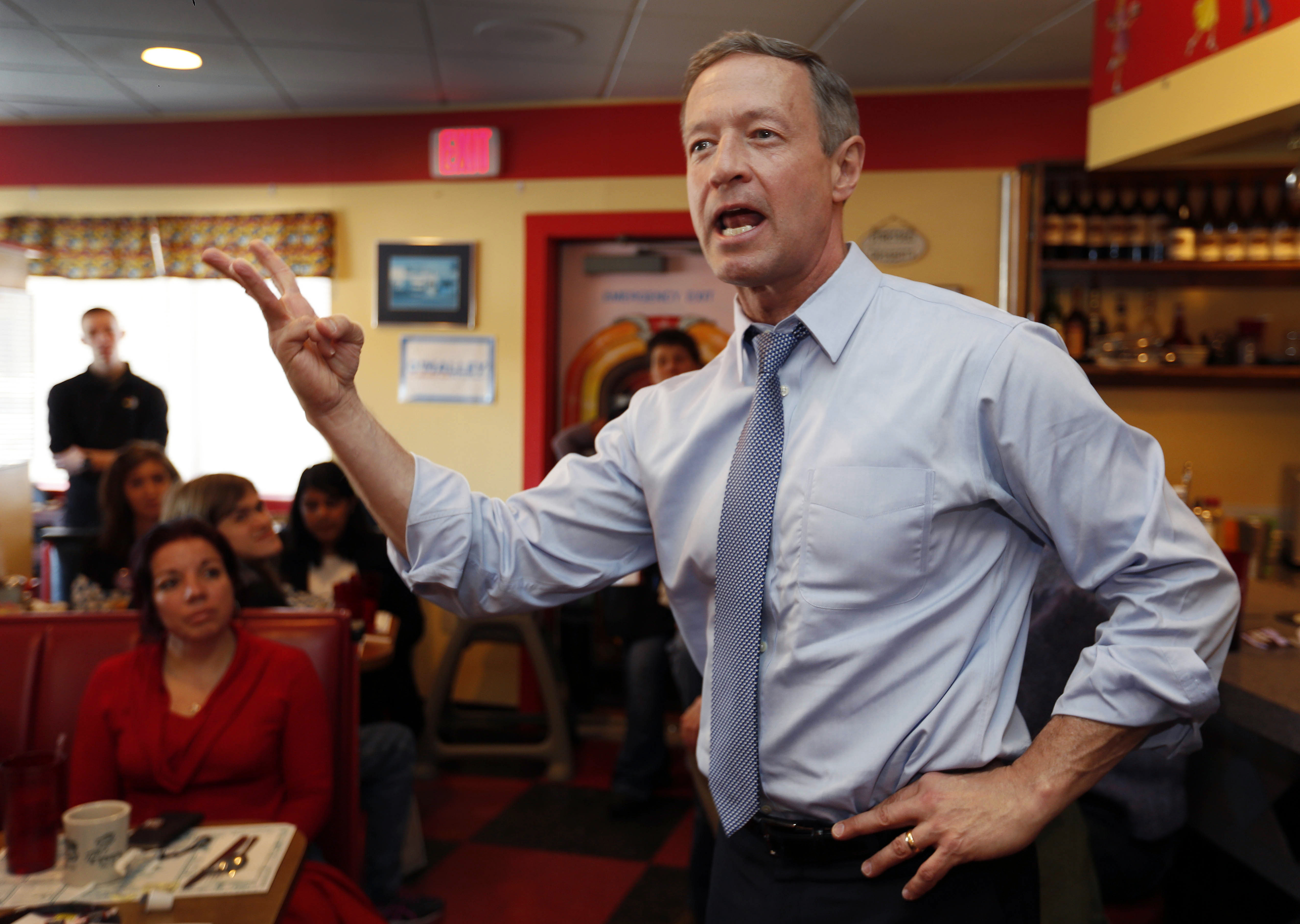 Sen. Rand Paul, R-Ky., speaks to WBKO in his hometown, Bowling Green, Ky., on Capitol Hill in Washington, Wednesday, Feb. 3, 2016, after announcing he is dropping his 2016 campaign for presiden. Eclipsed by other conservative candidates in the crowded 2016 field, he is now expected to turn his full attention to his Senate re-election campaign in Kentucky. (AP Photo/J. Scott Applewhite)
Sen. Rand Paul, R-Ky., speaks to WBKO in his hometown, Bowling Green, Ky., on Capitol Hill in Washington, Wednesday, Feb. 3, 2016, after announcing he is dropping his 2016 campaign for presiden. Eclipsed by other conservative candidates in the crowded 2016 field, he is now expected to turn his full attention to his Senate re-election campaign in Kentucky. (AP Photo/J. Scott Applewhite) EDITOR'S NOTE: An occasional look at words we hear in the 2016 campaign and what's behind them.
WASHINGTON - To hear exiting presidential primary candidates tell it, their campaigns never die. They are just suspended.
Make no mistake. When they suspend a campaign, as Rand Paul did Wednesday and Mike Huckabee and Martin O'Malley did right after the Iowa caucuses, it's not to take a break for household chores or a reflective week at the beach. It's game over.
Suspending a campaign is a term of art in politics that has little if any legal significance but may give the hopeful-no-more some wiggle room for continuing to raise money, if anyone is still inclined to give it, and for winding down operations.
Also, it sounds better than quitting.
The ex-candidates' campaign websites live on - mostly phantoms now, but with the "donate" link still active. The frantic appeals for cash subside, although Rick Santorum appealed for money to help pay the bills after suspending his 2012 Republican primary campaign.
Huckabee now says on his site "I have suspended my campaign" and he'll finally be "spending some time with my dogs." O'Malley, a Democrat, says "I am suspending my campaign for the presidency." Paul's still has him wanting to "unleash the American Dream" and an outdated schedule of campaign events. The site hadn't caught up with the Kentucky senator's video announcement: "Today I will suspend my campaign for the presidency."
A suspension may imply that if rival campaigns implode, the candidate can always jump back, a road rarely taken. One of the few exceptions: Ross Perot suspended his third-party presidential campaign in July 1992 only to renew it that October, a month before the election.
Candidates who power through much of the race before quitting have some standing afterward: a coveted endorsement to give, a prominent convention speaking slot to negotiate, perhaps substantial delegates to steer to a favored contender. But those who make little impact in the primary campaign have little impact outside of it.
For these departed, the bottom line of a suspension is that employees are let go, advisers disperse, donors place their bets on those still politically alive, and the campaign world moves inexorably on without them.


